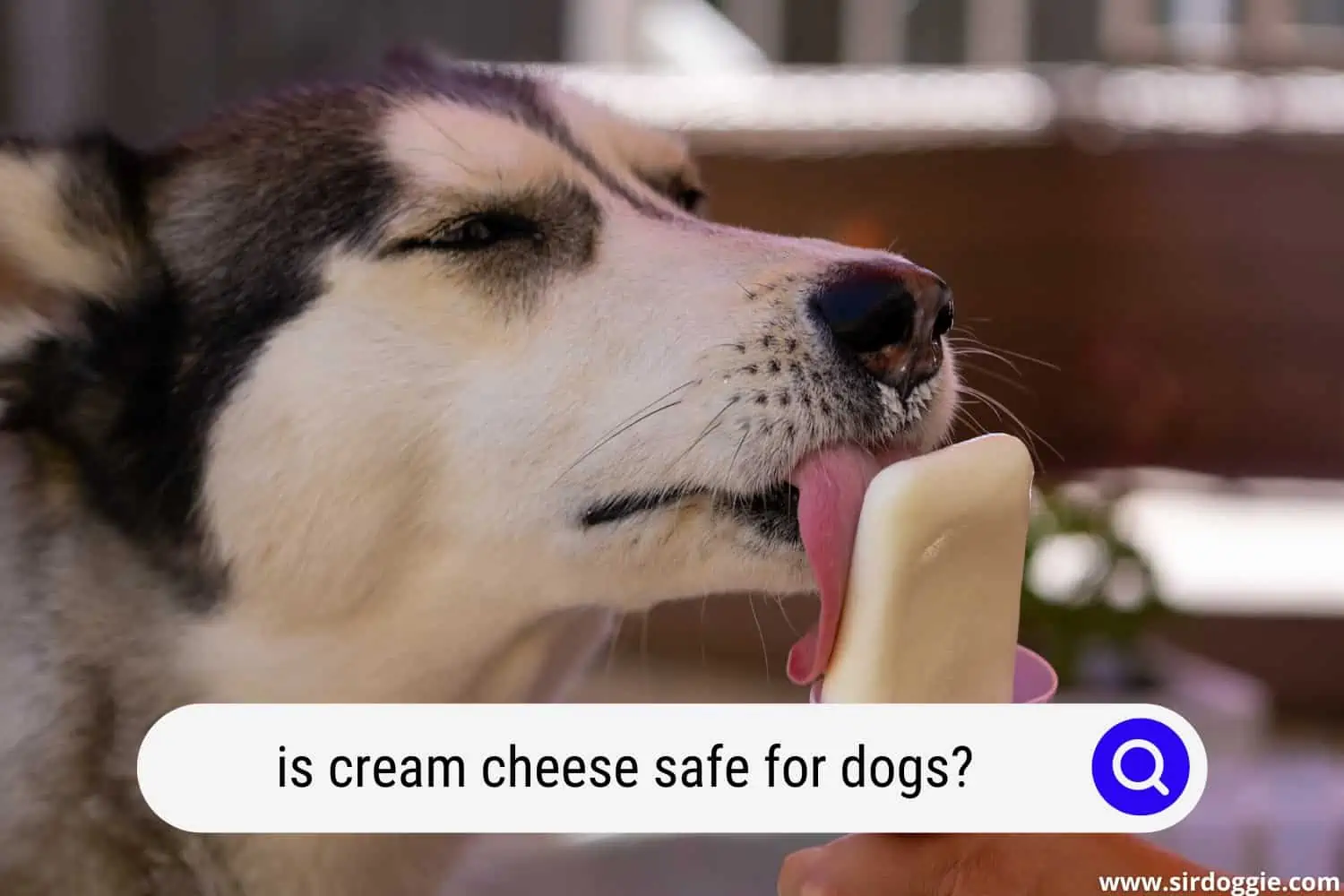Is Cream Cheese Safe For Dogs? Learn About Its 5 Great Benefits And 3 Drawbacks It Has
Is cream cheese safe for dogs? If you can’t live without your morning aromatic cup of coffee paired with a bagel with some white creamy goodness spread across its toasted crusty surface, you would probably want to share some with your cute furry friend. It would be invitingly staring into your eyes, begging for a piece of what you have. Generally, dairy products are safe for all mutts, doesn’t matter if it’s milk, cheese, yogurt, or cream cheese. However, certain pooches can be lactose intolerant and their bodies may react severely to any dairy consumption.
In this article, we will try to answer the question “Is cream cheese safe for dogs?” to see whether or not dogs can eat it, and what benefits, as well as downsides this dairy product has. Generally speaking, is it worth giving it to a mutt?

Dogs And Cream Cheese: Can Canines Eat It?
Overall yes, they can, as any other dairy product. You will not be able to find one pooch who doesn’t like cheese, for instance. I know my girl Ariel is an avid “fromage” fan who will do any type of trick for a slice of yellow goodness.
Cream cheese is also one of the most coveted canine dairy snacks and no hound will pass a chance to indulge in some creamy delish substance. A dog owner can put some in his/her pooch’s Kong toy or spread it all over a dental bone. You get a double benefit with the latter: keeping up with oral health while getting in some much-needed calcium.
Is Cream Cheese Safe For Dogs?
Logically thinking, if dairy products as a whole are canine-safe, then cream cheese should be as well. And it is. Unless your mutt is allergic to anything milk-based. In this case, a pet parent should refrain from giving it to his/her fur baby. If there are no known food allergies your pal suffers from, then you can try giving a small teaspoon-sized portion. Did your pooch gobble it enthusiastically? If so, you can give it out as a special type of treat for being on its best behavior. And now, let’s discuss why cream cheese is beneficial and what downsides it has.
Related Reading: Can Dogs Eat Cheeseburgers?
Benefits And Drawbacks Of Creem Cheese
Benefits
1. Calcium
Both the two-legged and the four-legged need this element to keep the bones strong. Also, aids in keeping teeth in tip-top shape.
2. Vitamins A, B12, D
All these components are essential for the eye, joints, skin, and nervous system health. You don’t even have to give your pooch an extra vitamin supplement if you give it a little cream cheese once in a while.
3. Lactic Acid For Easy Digestion
Some pooches cannot process lactose as it makes their tummies upset, causing a lot of gas problems. That’s when cream cheese comes in handy as it has lactic acid, which is a little more acidic, but a lot easier to process than lactose.
4. Gluten-Free
Great for gluten-intolerant sensitive canine bodies. Just check the packaging to make sure that the product you are buying is not processed in the same facility as the ones containing gluten (like crackers, cheese, or wheat).
5. Probiotic Effect
Cream cheese contains Lactobacillus bacteria, a good type of organism helping boost immunity, and lower gas issues, and bloating. It is best to buy the one containing live cultures as they are better for the immune system.
Drawbacks
1. High in Fat
Pretty much all dairy products have saturated fat, so it is best to look for a low- or non-fat option. Eating foods that a fattening can cause artery blockage problems and obesity.
2. Can’t Be Stored for Long
Cream cheese is one of the products that get spoiled easily. Especially if you leave it out in the open. Always check the expiration date when you buy it and make sure you refrigerate it after opening.
3. Low in Protein
Cream cheese only offers about 1.5 grams of protein per every 1 oz, which is significantly lower, compared to its milk and butter counterparts. Therefore if you want your mutt to eat more protein, introduce meat, fish, beans, and eggs into its diet.

Curl-Up
We have just discussed all the benefits and downsides of cream cheese and answered the question “Is cream cheese safe for dogs?” As we have just learned, it is generally safe. Yet, you have to be careful in administering this dairy product to a hound who is known to be lactose-intolerant as well as a pooch who is already allergic to something in the “dairy aisle.” Remember: feed cream cheese to your fluffy companion only as an occasional treat, not as a meal substitute or a snack that can be given regularly.
Related Reading: Are Black Beans Safe For Dogs?
FAQs
What cream cheese is safe for dogs?
It is best to only buy non-flavored, plain cream cheese, preferably low-fat or fat-free. Consuming foods that are loaded with fat can negatively impact a dog’s health in the long run, leading to heart disease and obesity. Especially in breeds that are prone to weight gain like Pugs, for instance.
Stay away from flavored cream cheese, more so if it has onion or garlic extract! These two plants from a shallot family are extremely toxic to any pooch, no matter the breed.
What happens if dogs eat cream cheese?
Cream cheese is not considered toxic to pooches, so no reaction is expected unless a dog is lactose-intolerant (cannot eat any dairy products whatsoever, no matter if it’s milk, cheese, or cream). It can be used as an occasional treat, but not as a meal substitute since it is very high in fat.
Please, make sure you give a pooch cream cheese that doesn’t contain garlic, onions, and leek. All the shallot family foods are extremely toxic for pooches and can cause diarrhea, stomach cramps, and a severe allergic reaction, leading to a lethal outcome in some cases.
How much cream cheese is too much for a dog?
If you feed your pooch a spoonful of the thick yummy goodness, it may not cause any effect. However, in case you give it more, it may trigger an allergic attack and/or stomach upset.

Family Dog Expert Author
Hi there! I’m Stuart, a devoted dog lover and family dog expert with over a decade of experience working with our furry companions. My passion for dogs drives me to share my knowledge and expertise, helping families build strong, loving bonds with their four-legged friends. When I’m not writing for SirDoggie, you’ll find me hiking, playing with my beautiful dog, or studying music.